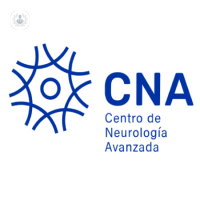Nocturnal epilepsy
What is nocturnal epilepsy?
Nocturnal epilepsy is a disorder of neurotic origin that disturbs sleep. This nervous crisis usually occurs in childhood and adolescence and is characterized by short periods during the night. This epilepsy fragments sleep and alters its phases, reducing the benefits of restful sleep due to the hyperactivation of different neuronal groups.
This epilepsy usually manifests in the form of hypermotor crises, crises with complex movements that affect the trunk and upper extremities. These crises usually start abruptly but without leaving symptoms at the end, there can be several in one night and range between one and twenty per week.
Symptoms of nocturnal epilepsy
The nocturnal epilepsy manifests itself in a motor way, with brief and repeated movements of the extremities, as well as the adoption of anomalous postures. These crises are also usually preceded by an aura that can be sensitive, psychic or autonomic. In the nocturnal epilepsy can also be drooling, vomiting or wetting the bed.
During the seizures you can give out cries, moans or grunts, something that can be confused with nightmares. The person who suffers can also get out of bed, which can be confused with sleepwalking.

What are the causes of nocturnal epilepsy?
The original cause of seizures is unknown today, but it seems to be due to changes in brain electrical activity during the sleep stages. Nocturnal frontal epilepsy is the first that is associated with a genetic cause, specifically with the genes responsible for encoding neuronal nicotinic receptors.
Can it be prevented?
Epilepsy can be prevented in some cases, but the most important thing is to avoid risk factors. These risk factors are lack of sleep, drinking alcoholic beverages, very high fever, illegal drugs, stress and light flashes.
What is the treatment?
The main treatment that is applied in nocturnal epilepsy are anticonvulsant drugs such as carbamazepine, valproate, gabapentin or oxcarbazepine. One can also consider the use of surgery or vagus nerve stimulation through surgically implanted mechanisms.



